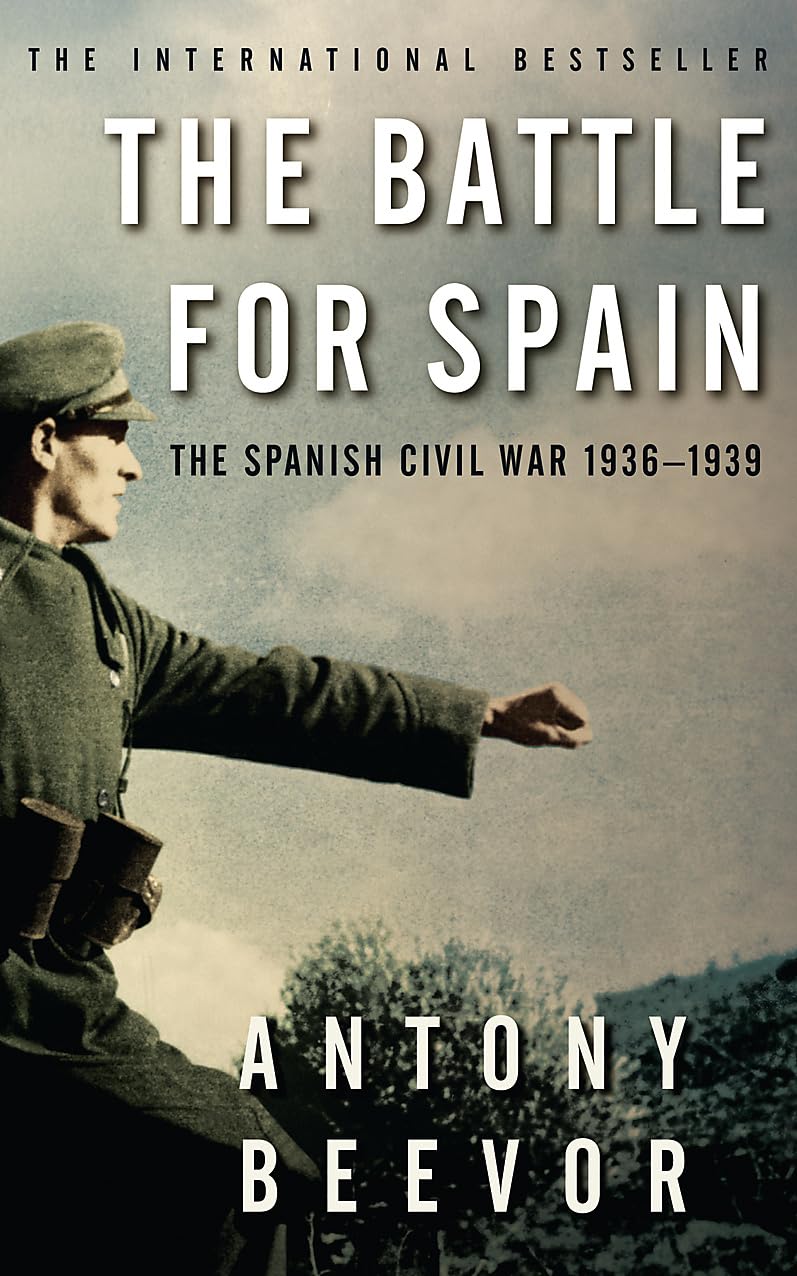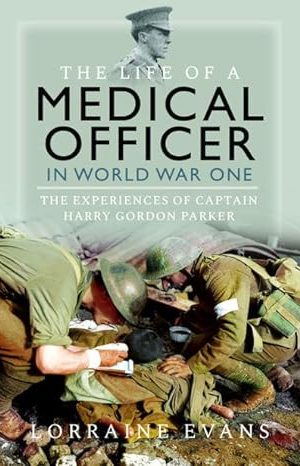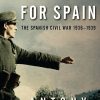The Battle for Spain: The Spanish Civil War 1936-1939
£9.70£14.20 (-32%)
The bestselling author of STALINGRAD and BERLIN: THE DOWNFALL on the Spanish Civil War, drawing on masses of newly discovered material from the Spanish, Russian and German archives.
The civil war that tore Spain apart between 1936 and 1939 and attracted liberals and socialists from across the world to support the cause against Franco was one of the most hard-fought and bitterest conflicts of the 20th century: a war of atrocities and political genocide and a military testing ground before WWII for the Russians, Italians and Germans, whose Condor Legion so notoriously destroyed Guernica.
Antony Beevor’s account narrates the origins of the Civil War and its violent and dramatic course from the coup d’etat in July 1936 through the savage fighting of the next three years which ended in catastrophic defeat for the Republicans in 1939. And he succeeds especially well in unravelling the complex political and regional forces that played such an important part in the origins and history of the war.
Read more
Additional information
| Publisher | First Paperback Edition (24 May 2007), W&N |
|---|---|
| Language | English |
| Paperback | 624 pages |
| ISBN-10 | 9780753821657 |
| ISBN-13 | 978-0753821657 |
| Dimensions | 13.6 x 4.8 x 21.4 cm |










by Phildog
I decided to read about the Spanish War after a trip to Madrid. Knowing nothing of the conflict and the political upheavals of a country I had visited so often, I became intrigued.
Beevor has produced a painstaking tome that is comprehensive in its coverage of the Spanish Civil War. It is not an easy read, as the description of battles and reprisals was repetitive. That repetition however provided the necessary understanding of what a depressing conflict it was. The conduct of both sides was reprehensible. The military strategy of both sides was inept. Perhaps more than any other conflict of the century, there appears to be no logic for prolonging the war once the inevitable was understood.
Depressing to read, but invaluable for learning historical lessons. It will take time, but it is worth it.
by Ivor R. B. Hibbitt
The Battle for Spain
The Spanish Civil War 1936-1939
By Antony Beevor
A review by the Cote d’Azur Men’s Book Group
Professional historians often take comfort from the mass of detail in once secret files and wax eloquent when they are opened to scrutiny and reveal new versions of what really happened, for, as Churchill wrote “in war the truth must be surrounded by a bodyguard of lies”
Antony Beevor has produced the latest edition of the The Spanish Civil War that was first published in 1982 and reprinted by various publishers. It is not the same book as the original for it has been rewritten in many parts to include, in particular, the role of the Soviet Union in stoking the flames of war, supplying planes, tanks and ammunition and because the NKVD files show how the game was worth playing from the communist point of view.
The war was as violent and vicious as one would have feared. What was different was that all the then great powers had surrogate fingers on the trigger.Many films and videos have attested to the terrible human cost and books, by George Orwell and Heminway’s Farewell to Arms testified to its raw brutality.
Germany supplied Franco’s nationalists with everything they needed and, as the bombing of Guernica showed, used the battle as a training ground for the Second World War. Hit;er made Spain pay through the nose for his support and Russia made off with tons of Spanish gold. Those two comrades in arms also helped themselves to the spoils of war while extending hands of alleged political friendship
So what new has the author provided to whet our appetites? W ell, this book is described by The Times Literary Supplement reviewer as “a moving masterpiece of the indictment of war” and “a brilliant achievement”, words that left the Book Group in a quandary. Members thought the book was packed with far too much detail and even trying to follow the orders of battle was confusing. Do we really want to know who was with what political organisation, that the communists were split into specific political groupings and that by joining the “wrong” cell you would be on Stalin’s death list?
Facts, Russian facts culled from the secret files, are merely interesting not breathtaking. The NKVD did what they have always done, disposing of their enemies and even their friends on the streets, in the dungerons and on the battlefields while Franco murdered real enemies and also hapless innocent civilians caught up in the battles. Political opposition groups were shown no mercy.
Many British left wing idealists and intellectuals joined the Republican cause only to be disillusioned and fearing a NKVD bullet in the head, execution style, while thousands of refugees fled the country and Franco . A number of them ended in Russia where the Spanish Blue Division was formed and fought for the Russians on the Leningrad Front.
Countless thousands of Spaniards were sent to the infamous Gulags and many of those who stayed at home were persecuted. It turned out to be probably the first surrogate war in which foreign countries were content to watch from a distance and in the end pick over the bones and booty.
The Battle for Spain is a scholarly book but seems to lack Beevor’s usual clarity and mastery of important detail. This is disappointing given the circumstances, the many recorded instances of atrocities but above all the red hot passion of the Spanish people does not emerge in cold print.
It is thirty years since the first publication. It quite possibly was a masterpiece then but the book group found it difficult to repeat that accolade today. It is undoubtedly of great importance for the professional historian, but it is now too much for the general readers.
The Battle for Spain
The Spanish Civil War 1936-1939
By Antony Beevor
A review by the Cote d’Azur Men’s Book Group
Professional historians often take comfort from the mass of detail in once secret files and wax eloquent when they are opened to scrutiny and reveal new versions of what really happened, for, as Churchill wrote “in war the truth must be surrounded by a bodyguard of lies”
Antony Beevor has produced the latest edition of the The Spanish Civil War that was first published in 1982 and reprinted by various publishers. It is not the same book as the original for it has been rewritten in many parts to include, in particular, the role of the Soviet Union in stoking the flames of war, supplying planes, tanks and ammunition and because the NKVD files show how the game was worth playing from the communist point of view.
The war was as violent and vicious as one would have feared. What was different was that all the then great powers had surrogate fingers on the trigger.
Germany supplied Franco’s nationalists with everything they needed and, as the bombing of Guernica showed, used the battle as a training ground for the Second World War. Hit;er made Spain pay through the nose for his support and Russia made off with tons of Spanish gold. Those two comrades in arms also helped themselves to the spoils of war while extending hands of alleged political friendship
So what new has the author provided to whet our appetites? W ell, this book is described by The Times Literary Supplement reviewer as “a moving masterpiece of the indictment of war” and “a brilliant achievement”, words that left the Book Group in a quandary. Members thought the book was packed with far too much detail and even trying to follow the orders of battle was confusing. Do we really want to know who was with what political organisation, that the communists were split into specific political groupings and that by joining the “wrong” cell you would be on Stalin’s death list?
Facts, Russian facts culled from the secret files, are merely interesting not breathtaking. The NKVD did what they have always done, disposing of their enemies and even their friends on the streets, in the dungerons and on the battlefields while Franco murdered real enemies and also hapless innocent civilians caught up in the battles. Political opposition groups were shown no mercy.
Many British left wing idealists and intellectuals joined the Republican cause only to be disillusioned and fearing a NKVD bullet in the head, execution style, while thousands of refugees fled the country and Franco . A number of them ended in Russia where the Spanish Blue Division was formed and fought for the Russians on the Leningrad Front.
Countless thousands of Spaniards were sent to the infamous Gulags and many of those who stayed at home were persecuted. It turned out to be probably the first surrogate war in which foreign countries were content to watch from a distance and in the end pick over the bones and booty.
The Battle for Spain is a scholarly book but seems to lack Beevor’s usual clarity and mastery of important detail. This is disappointing given the circumstances, the many recorded instances of atrocities but above all the red hot passion of the Spanish people does not emerge in cold print.
It is thirty years since the first publication. It quite possibly was a masterpiece then but the book group found it difficult to repeat that accolade today. It is undoubtedly of great importance for the professional historian, but it is now too much for the general readers.
End
The Spanish Civil War 1936-1939
By Antony Beevor
A review by the Cote d’Azur Men’s Book Group
Professional historians often take comfort from the mass of detail in once secret files and wax eloquent when they are opened to scrutiny and reveal new versions of what really happened, for, as Churchill wrote “in war the truth must be surrounded by a bodyguard of lies”
Antony Beevor has produced the latest edition of the The Spanish Civil War that was first published in 1982 and reprinted by various publishers. It is not the same book as the original for it has been rewritten in many parts to include, in particular, the role of the Soviet Union in stoking the flames of war, supplying planes, tanks and ammunition and because the NKVD files show how the game was worth playing from the communist point of view.
The war was as violent and vicious as one would have feared. What was different was that all the then great powers had surrogate fingers on the trigger.
Germany supplied Franco’s nationalists with everything they needed and, as the bombing of Guernica showed, used the battle as a training ground for the Second World War. Hit;er made Spain pay through the nose for his support and Russia made off with tons of Spanish gold. Those two comrades in arms also helped themselves to the spoils of war while extending hands of alleged political friendship
So what new has the author provided to whet our appetites? W ell, this book is described by The Times Literary Supplement reviewer as “a moving masterpiece of the indictment of war” and “a brilliant achievement”, words that left the Book Group in a quandary. Members thought the book was packed with far too much detail and even trying to follow the orders of battle was confusing. Do we really want to know who was with what political organisation, that the communists were split into specific political groupings and that by joining the “wrong” cell you would be on Stalin’s death list?
Facts, Russian facts culled from the secret files, are merely interesting not breathtaking. The NKVD did what they have always done, disposing of their enemies and even their friends on the streets, in the dungerons and on the battlefields while Franco murdered real enemies and also hapless innocent civilians caught up in the battles. Political opposition groups were shown no mercy.
Many British left wing idealists and intellectuals joined the Republican cause only to be disillusioned and fearing a NKVD bullet in the head, execution style, while thousands of refugees fled the country and Franco . A number of them ended in Russia where the Spanish Blue Division was formed and fought for the Russians on the Leningrad Front.
Countless thousands of Spaniards were sent to the infamous Gulags and many of those who stayed at home were persecuted. It turned out to be probably the first surrogate war in which foreign countries were content to watch from a distance and in the end pick over the bones and booty.
The Battle for Spain is a scholarly book but seems to lack Beevor’s usual clarity and mastery of important detail. This is disappointing given the circumstances, the many recorded instances of atrocities but above all the red hot passion of the Spanish people does not emerge in cold print.
It is thirty years since the first publication. It quite possibly was a masterpiece then but the book group found it difficult to repeat that accolade today. It is undoubtedly of great importance for the professional historian, but it is now too much for the general readers.
End
The Battle for Spain
The Spanish Civil War 1936-1939
By Antony Beevor
A review by the Cote d’Azur Men’s Book Group
Professional historians often take comfort from the mass of detail in once secret files and wax eloquent when they are opened to scrutiny and reveal new versions of what really happened, for, as Churchill wrote “in war the truth must be surrounded by a bodyguard of lies”
Antony Beevor has produced the latest edition of the The Spanish Civil War that was first published in 1982 and reprinted by various publishers. It is not the same book as the original for it has been rewritten in many parts to include, in particular, the role of the Soviet Union in stoking the flames of war, supplying planes, tanks and ammunition and because the NKVD files show how the game was worth playing from the communist point of view.
The war was as violent and vicious as one would have feared. What was different was that all the then great powers had surrogate fingers on the trigger.
Germany supplied Franco’s nationalists with everything they needed and, as the bombing of Guernica showed, used the battle as a training ground for the Second World War. Hit;er made Spain pay through the nose for his support and Russia made off with tons of Spanish gold. Those two comrades in arms also helped themselves to the spoils of war while extending hands of alleged political friendship
So what new has the author provided to whet our appetites? W ell, this book is described by The Times Literary Supplement reviewer as “a moving masterpiece of the indictment of war” and “a brilliant achievement”, words that left the Book Group in a quandary. Members thought the book was packed with far too much detail and even trying to follow the orders of battle was confusing. Do we really want to know who was with what political organisation, that the communists were split into specific political groupings and that by joining the “wrong” cell you would be on Stalin’s death list?
Facts, Russian facts culled from the secret files, are merely interesting not breathtaking. The NKVD did what they have always done, disposing of their enemies and even their friends on the streets, in the dungerons and on the battlefields while Franco murdered real enemies and also hapless innocent civilians caught up in the battles. Political opposition groups were shown no mercy.
Many British left wing idealists and intellectuals joined the Republican cause only to be disillusioned and fearing a NKVD bullet in the head, execution style, while thousands of refugees fled the country and Franco . A number of them ended in Russia where the Spanish Blue Division was formed and fought for the Russians on the Leningrad Front.
Countless thousands of Spaniards were sent to the infamous Gulags and many of those who stayed at home were persecuted. It turned out to be probably the first surrogate war in which foreign countries were content to watch from a distance and in the end pick over the bones and booty.
The Battle for Spain is a scholarly book but seems to lack Beevor’s usual clarity and mastery of important detail. This is disappointing given the circumstances, the many recorded instances of atrocities but above all the red hot passion of the Spanish people does not emerge in cold print.
It is thirty years since the first publication. It quite possibly was a masterpiece then but the book group found it difficult to repeat that accolade today. It is undoubtedly of great importance for the professional historian, but it is now too much for the general readers.
End
The Battle for Spain
The Spanish Civil War 1936-1939
By Antony Beevor
A review by the Cote d’Azur Men’s Book Group
Professional historians often take comfort from the mass of detail in once secret files and wax eloquent when they are opened to scrutiny and reveal new versions of what really happened, for, as Churchill wrote “in war the truth must be surrounded by a bodyguard of lies”
Antony Beevor has produced the latest edition of the The Spanish Civil War that was first published in 1982 and reprinted by various publishers. It is not the same book as the original for it has been rewritten in many parts to include, in particular, the role of the Soviet Union in stoking the flames of war, supplying planes, tanks and ammunition and because the NKVD files show how the game was worth playing from the communist point of view.
The war was as violent and vicious as one would have feared. What was different was that all the then great powers had surrogate fingers on the trigger.
Germany supplied Franco’s nationalists with everything they needed and, as the bombing of Guernica showed, used the battle as a training ground for the Second World War. Hit;er made Spain pay through the nose for his support and Russia made off with tons of Spanish gold. Those two comrades in arms also helped themselves to the spoils of war while extending hands of alleged political friendship
So what new has the author provided to whet our appetites? W ell, this book is described by The Times Literary Supplement reviewer as “a moving masterpiece of the indictment of war” and “a brilliant achievement”, words that left the Book Group in a quandary. Members thought the book was packed with far too much detail and even trying to follow the orders of battle was confusing. Do we really want to know who was with what political organisation, that the communists were split into specific political groupings and that by joining the “wrong” cell you would be on Stalin’s death list?
Facts, Russian facts culled from the secret files, are merely interesting not breathtaking. The NKVD did what they have always done, disposing of their enemies and even their friends on the streets, in the dungerons and on the battlefields while Franco murdered real enemies and also hapless innocent civilians caught up in the battles. Political opposition groups were shown no mercy.
Many British left wing idealists and intellectuals joined the Republican cause only to be disillusioned and fearing a NKVD bullet in the head, execution style, while thousands of refugees fled the country and Franco . A number of them ended in Russia where the Spanish Blue Division was formed and fought for the Russians on the Leningrad Front.
Countless thousands of Spaniards were sent to the infamous Gulags and many of those who stayed at home were persecuted. It turned out to be probably the first surrogate war in which foreign countries were content to watch from a distance and in the end pick over the bones and booty.
The Battle for Spain is a scholarly book but seems to lack Beevor’s usual clarity and mastery of important detail. This is disappointing given the circumstances, the many recorded instances of atrocities but above all the red hot passion of the Spanish people does not emerge in cold print.
It is thirty years since the first publication. It quite possibly was a masterpiece then but the book group found it difficult to repeat that accolade today. It is undoubtedly of great importance for the professional historian, but it is now too much for the general readers.
End
The Battle for Spain
The Spanish Civil War 1936-1939
By Antony Beevor
A review by the Cote d’Azur Men’s Book Group
Professional historians often take comfort from the mass of detail in once secret files and wax eloquent when they are opened to scrutiny and reveal new versions of what really happened, for, as Churchill wrote “in war the truth must be surrounded by a bodyguard of lies”
Antony Beevor has produced the latest edition of the The Spanish Civil War that was first published in 1982 and reprinted by various publishers. It is not the same book as the original for it has been rewritten in many parts to include, in particular, the role of the Soviet Union in stoking the flames of war, supplying planes, tanks and ammunition and because the NKVD files show how the game was worth playing from the communist point of view.
The war was as violent and vicious as one would have feared. What was different was that all the then great powers had surrogate fingers on the trigger.
Germany supplied Franco’s nationalists with everything they needed and, as the bombing of Guernica showed, used the battle as a training ground for the Second World War. Hit;er made Spain pay through the nose for his support and Russia made off with tons of Spanish gold. Those two comrades in arms also helped themselves to the spoils of war while extending hands of alleged political friendship
So what new has the author provided to whet our appetites? W ell, this book is described by The Times Literary Supplement reviewer as “a moving masterpiece of the indictment of war” and “a brilliant achievement”, words that left the Book Group in a quandary. Members thought the book was packed with far too much detail and even trying to follow the orders of battle was confusing. Do we really want to know who was with what political organisation, that the communists were split into specific political groupings and that by joining the “wrong” cell you would be on Stalin’s death list?
Facts, Russian facts culled from the secret files, are merely interesting not breathtaking. The NKVD did what they have always done, disposing of their enemies and even their friends on the streets, in the dungerons and on the battlefields while Franco murdered real enemies and also hapless innocent civilians caught up in the battles. Political opposition groups were shown no mercy.
Many British left wing idealists and intellectuals joined the Republican cause only to be disillusioned and fearing a NKVD bullet in the head, execution style, while thousands of refugees fled the country and Franco . A number of them ended in Russia where the Spanish Blue Division was formed and fought for the Russians on the Leningrad Front.
Countless thousands of Spaniards were sent to the infamous Gulags and many of those who stayed at home were persecuted. It turned out to be probably the first surrogate war in which foreign countries were content to watch from a distance and in the end pick over the bones and booty.
The Battle for Spain is a scholarly book but seems to lack Beevor’s usual clarity and mastery of important detail. This is disappointing given the circumstances, the many recorded instances of atrocities but above all the red hot passion of the Spanish people does not emerge in cold print.
It is thirty years since the first publication. It quite possibly was a masterpiece then but the book group found it difficult to repeat that accolade today. It is undoubtedly of great importance for the professional historian, but it is now too much for the general readers.
End
The Battle for Spain
The Spanish Civil War 1936-1939
By Antony Beevor
A review by the Cote d’Azur Men’s Book Group
Professional historians often take comfort from the mass of detail in once secret files and wax eloquent when they are opened to scrutiny and reveal new versions of what really happened, for, as Churchill wrote “in war the truth must be surrounded by a bodyguard of lies”
Antony Beevor has produced the latest edition of the The Spanish Civil War that was first published in 1982 and reprinted by various publishers. It is not the same book as the original for it has been rewritten in many parts to include, in particular, the role of the Soviet Union in stoking the flames of war, supplying planes, tanks and ammunition and because the NKVD files show how the game was worth playing from the communist point of view.
The war was as violent and vicious as one would have feared. What was different was that all the then great powers had surrogate fingers on the trigger.
Germany supplied Franco’s nationalists with everything they needed and, as the bombing of Guernica showed, used the battle as a training ground for the Second World War. Hit;er made Spain pay through the nose for his support and Russia made off with tons of Spanish gold. Those two comrades in arms also helped themselves to the spoils of war while extending hands of alleged political friendship
So what new has the author provided to whet our appetites? W ell, this book is described by The Times Literary Supplement reviewer as “a moving masterpiece of the indictment of war” and “a brilliant achievement”, words that left the Book Group in a quandary. Members thought the book was packed with far too much detail and even trying to follow the orders of battle was confusing. Do we really want to know who was with what political organisation, that the communists were split into specific political groupings and that by joining the “wrong” cell you would be on Stalin’s death list?
Facts, Russian facts culled from the secret files, are merely interesting not breathtaking. The NKVD did what they have always done, disposing of their enemies and even their friends on the streets, in the dungerons and on the battlefields while Franco murdered real enemies and also hapless innocent civilians caught up in the battles. Political opposition groups were shown no mercy.
Many British left wing idealists and intellectuals joined the Republican cause only to be disillusioned and fearing a NKVD bullet in the head, execution style, while thousands of refugees fled the country and Franco . A number of them ended in Russia where the Spanish Blue Division was formed and fought for the Russians on the Leningrad Front.
Countless thousands of Spaniards were sent to the infamous Gulags and many of those who stayed at home were persecuted. It turned out to be probably the first surrogate war in which foreign countries were content to watch from a distance and in the end pick over the bones and booty.
The Battle for Spain is a scholarly book but seems to lack Beevor’s usual clarity and mastery of important detail. This is disappointing given the circumstances, the many recorded instances of atrocities but above all the red hot passion of the Spanish people does not emerge in cold print.
It is thirty years since the first publication. It quite possibly was a masterpiece then but the book group found it difficult to repeat that accolade today. It is undoubtedly of great importance for the professional historian, but it is now too much for the general readers.
End
The Battle for Spain
The Spanish Civil War 1936-1939
By Antony Beevor
A review by the Cote d’Azur Men’s Book Group
Professional historians often take comfort from the mass of detail in once secret files and wax eloquent when they are opened to scrutiny and reveal new versions of what really happened, for, as Churchill wrote “in war the truth must be surrounded by a bodyguard of lies”
Antony Beevor has produced the latest edition of the The Spanish Civil War that was first published in 1982 and reprinted by various publishers. It is not the same book as the original for it has been rewritten in many parts to include, in particular, the role of the Soviet Union in stoking the flames of war, supplying planes, tanks and ammunition and because the NKVD files show how the game was worth playing from the communist point of view.
The war was as violent and vicious as one would have feared. What was different was that all the then great powers had surrogate fingers on the trigger.
Germany supplied Franco’s nationalists with everything they needed and, as the bombing of Guernica showed, used the battle as a training ground for the Second World War. Hit;er made Spain pay through the nose for his support and Russia made off with tons of Spanish gold. Those two comrades in arms also helped themselves to the spoils of war while extending hands of alleged political friendship
So what new has the author provided to whet our appetites? W ell, this book is described by The Times Literary Supplement reviewer as “a moving masterpiece of the indictment of war” and “a brilliant achievement”, words that left the Book Group in a quandary. Members thought the book was packed with far too much detail and even trying to follow the orders of battle was confusing. Do we really want to know who was with what political organisation, that the communists were split into specific political groupings and that by joining the “wrong” cell you would be on Stalin’s death list?
Facts, Russian facts culled from the secret files, are merely interesting not breathtaking. The NKVD did what they have always done, disposing of their enemies and even their friends on the streets, in the dungerons and on the battlefields while Franco murdered real enemies and also hapless innocent civilians caught up in the battles. Political opposition groups were shown no mercy.
Many British left wing idealists and intellectuals joined the Republican cause only to be disillusioned and fearing a NKVD bullet in the head, execution style, while thousands of refugees fled the country and Franco . A number of them ended in Russia where the Spanish Blue Division was formed and fought for the Russians on the Leningrad Front.
Countless thousands of Spaniards were sent to the infamous Gulags and many of those who stayed at home were persecuted. It turned out to be probably the first surrogate war in which foreign countries were content to watch from a distance and in the end pick over the bones and booty.
The Battle for Spain is a scholarly book but seems to lack Beevor’s usual clarity and mastery of important detail. This is disappointing given the circumstances, the many recorded instances of atrocities but above all the red hot passion of the Spanish people does not emerge in cold print.
It is thirty years since the first publication. It quite possibly was a masterpiece then but the book group found it difficult to repeat that accolade today. It is undoubtedly of great importance for the professional historian, but it is now too much for the general readers.
End
The Battle for Spain
The Spanish Civil War 1936-1939
By Antony Beevor
A review by the Cote d’Azur Men’s Book Group
Professional historians often take comfort from the mass of detail in once secret files and wax eloquent when they are opened to scrutin
by gerardpeter
This is wonderful history-writing – both content and style. The author delivers a paced narrative of this terrible war – attention is paid in particular to the battlefield. Political controversies that determined sides at the time and debates ever since – these are considered and judged. Anthony Beevor confirms a deserved reputation as a researcher and a writer.
The account is arranged in forty relatively short chapters in seven sections. I found it straightforward to follow. The war did not begin on July 18 1936: a short early section traces division and discord to the 15th century. It did not end on 29 March 1939: the aftermath is reviewed to the death of the dictator. A final chapter offers his take on the big questions and the “what ifs”.
The meat of the book is the war itself.
This was a vicious conflict – civil wars are. The author does not feast on gory detail – he catalogues the toll in lives lost and livelihoods destroyed. He is at his best on the military war, especially its major battles.
The author makes sense of the forces on each side – anarchists, social democrats, Basques, Catalans and communists for the republic; Carlists, falangists and the officer class for Franco. He has been accused of bias, pro-republic and anti-Franco. However, the truth is that the victors exacted a very heavy price for defeat and – in a war where neither side was blameless – they spilt more innocent blood. The last twenty years have revealed concealed secrets and bodies.
Moreover, he does not spare the left. As the war continued, the republic lost its democratic legitimacy – centralization of command gave way to authoritarian rule. The machinations of the communists are skewered – both the PCE and their Soviet advisers. Show trials, gulags and purges found their way from Moscow to Spain. Had they triumphed, he suggests, a republic under a Stalinist leadership may have delivered the same repression imposed on the satellite states of the east after 1945.
The international dimensions of the struggle are woven in. Unlike others, he does not lionize the International brigades. A decisive role is accorded the German Condor Legion, superior to the more numerous but less effective Italian troops sent by Mussolini. Soviet support may have saved Madrid in 1936 but it was always given and, later, taken away according to wider considerations of the Kremlin. The democracies – especially Britain – come in for sharp criticism.
Could the Republic have won? His answer is – it might not have lost, it might have survived until the rest of Europe joined in. The republic should have conducted a defensive war. Major ground offensives were prompted by political dictate rather than by strategic sense; republican forces were left open to enemy artillery and air power, with disastrous consequences.
This edition was published in 2005, a substantial reworking of the original of 1982 using the now accessible Soviet archives.
In 2005 the author wondered whether as citizens of relative comfort we could really understand those people those times. The past he wrote is another country. It is hard not to wonder whether that other country is not Syria 2016. A conflict of complexity and intolerance and appalling brutality, and proxy fighters too; and of course the same tide of the dispossessed and the terrorized.
by Lotta Continua
As a child, the Spanish civil war was simple, honourable republicans supported by the International Brigades abandoned to a comical fascist dictator by the treacherous governments of Western Europe. Beevor shows that the reality is more complex as both sides vied for barbaric excess to defeat their rivals in a divided and ungovernable society.
The totalitarianism of the Spanish Communists who purged their own forces with many International Brigades volunteers shot for dissent or tortured. The war degenerated into a clash of political extremes with the final triumph of the cruel, devious and corrupt Franco.
Thorough and detailed analysis unlocks the truth of a tragic conflict.